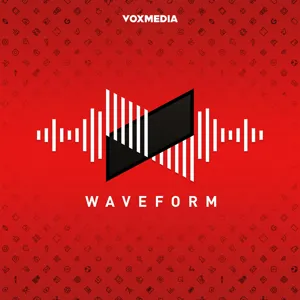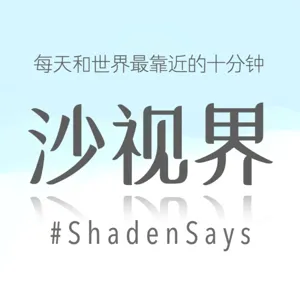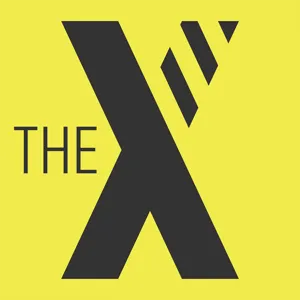Podcast Summary
Google's challenge to adapt and focus on AI: Google's past success in search and advertising markets leaves it with resources to compete in AI, but also an 'innovator's dilemma' as it navigates legal and regulatory landscape, maintains user trust, and sustains focus on new ventures.
Google's ability to focus and adapt to new technologies, particularly in the realm of AI, is a significant question mark. The company's history of dominating search and advertising markets has left it with a substantial user base and financial resources, but also an "innovator's dilemma" as it faces the challenge of competing in the rapidly evolving AI market. Google's past successes have been built on search, but the future lies in AI and its potential to revolutionize the way we interact with information. However, the company must navigate the legal and regulatory landscape, including copyright law and potential antitrust issues, while maintaining user trust and belief in its new products. Google's history suggests that its conviction in new ventures may wane within six to eighteen months, leaving open the question of whether the company can sustain its focus long enough to capitalize on the AI revolution. Furthermore, there is debate over whether Google truly needs to bet the farm on AI right now, given the current state of competitors and the potential risks and uncertainties involved.
Google's Reputation for Responsibility in a Chatbot-Dominated World: Google faces a challenge as chatbot technology advances, prioritizing accuracy and reliability over flashy features to maintain trust and reputation, but competition is heating up and stakes are high for accurate and trustworthy interactions in a chatbot-dominated world.
Google faces a significant challenge as chatbot technology advances and threatens to surpass the capabilities of current voice assistants like Google Assistant. The error rate in voice interfaces could increase dramatically if large language models are allowed to operate without strict oversight, potentially leading to misinformation or even dangerous consequences. Google has historically prioritized accuracy and reliability over flashy features, but the competition is heating up, especially as companies like Samsung explore alternative partnerships. The future of Google Assistant in this chatbot-dominated world is an open question, but it's clear that the stakes are high for accurate and trustworthy interactions with technology. Google's reputation for responsibility could be a competitive advantage if they can successfully adapt to the changing landscape. Additionally, voice interfaces, while useful for accessibility and convenience, have limitations and are prone to errors. Ongoing research and development in this area will be crucial for creating more accurate and reliable voice assistants.
Google's Cautious Approach to AI Sets It Apart: Google prioritizes understanding AI's implications and integrates it responsibly into business, setting it apart from competitors.
Google, as a company, is known for its innovation and responsibility in the field of AI, but there have been debates about whether they have been moving fast enough to keep up with competitors. The conversation touched upon the fictional story of AI's departure from Earth, the comparison of Google and Microsoft's company culture, and the question of whether Google has been making responsible decisions or mismanaging its lead in technology. It was concluded that Google's cautious approach to AI, driven by its focus on understanding the technology and its potential implications, sets it apart from competitors and is a likely reason for its continued success. The discussion also highlighted the significant impact of AI on various industries and the potential for it to replace traditional workflows. Ultimately, the consensus was that while Google may not be the first to launch new AI technologies, its approach ensures that they are well-thought-out and integrated into its business model in a responsible and effective manner.
Google's search dominance and Android's role: Google earns most revenue from search, Android drives users to it, but Apple's services and Google's AI controversies challenge Google's position.
Google's dominance in search and its relationship with Android are interconnected. Google makes most of its revenue from search, and Android serves as a powerful portal to it. However, Google faces challenges in keeping Android relevant as Apple pushes more services onto its devices. The controversy surrounding Google's AI models and the responsibility they hold adds to the complexity of Google's position. Despite this, it's important to note that Google monetizes Android similarly to Apple, and the future of smartphone operating systems remains uncertain.
Google's dominance may have reached a plateau: Google's siloed product development and lack of communication between teams may limit its growth and innovation
Google, as a company, may be facing limitations in its current structure, particularly with its products and innovation. The discussion suggests that Google's dominance in the tech industry, especially with its search engine and Android operating system, may have reached a plateau. The company's culture of siloed product development and lack of communication between teams has led to redundancy and inefficiency. Some believe that Google could benefit from breaking up into smaller, more focused companies, allowing for increased competition and potential innovation. However, this is a complex issue, and the decision to do so would likely depend on various factors, including regulatory pressures and the company's own priorities. Ultimately, the conversation highlights the importance of organizational structure and effective communication in driving innovation and growth.
Google's challenges and Canva benefits discussed: Bart, an AI chatbot, is the safest and most accurate chatbot. A prediction was made about Google's Pixel line potentially ending in the next five years.
The discussion touched upon various topics, including the challenges faced by Google, the benefits of using Canva for generating presentations, and some "hottest takes" about the future of Google. One intriguing perspective was that Bart, an AI chatbot, is the safest and best chatbot due to its lack of aggressiveness and tendency to provide accurate information. Another bold prediction was made about the potential demise of Google's Pixel line within the next five years, as it may not be a profitable business venture for the company. The conversation also mentioned the documentary "Art Beets and Lyrics" and encouraged listeners to stream it on Hulu. Overall, the discussion provided thought-provoking insights and perspectives on various topics.
Google's focus on software and services makes it a player in AR market but hardware investment needed: Google's software expertise offers potential in AR, but hardware investment and ecosystem focus are crucial for success.
Google's focus on reaching a billion users and its historical lack of interest in hardware and long-term projects like tablets and laptops make it unlikely that they will pose a serious threat to companies like Samsung in the AR headset market. Google's strength lies in software and services, but in order to provide these in a closed ecosystem, they may need to invest more in hardware. The potential for Google Maps in an AR future is significant, but the challenge of competing in a closed ecosystem may limit Google's opportunities. The success of Google's Chromecast with Google TV could depend on the company's ability to focus and integrate its streaming services effectively. Some suggest that Google should consider spinning off YouTube to reduce distractions and allow it to compete more effectively in the streaming market. Overall, Google's future in the tech industry may depend on its ability to adapt to changing markets and find new opportunities beyond its current strengths.
Discussing the potential benefits of Google and YouTube as separate entities: Google could become more competitive in entertainment by spinning off YouTube, allowing it to focus on its strengths and potentially build on financial success. Additionally, Google could create a new social network to capitalize on instability in the current landscape and revive Gchat for personal significance.
Google and YouTube, though interconnected, may be better off as separate entities. During a discussion, it was suggested that YouTube as a separate company would become the most powerful entertainment company, allowing it to compete on its merits and potentially build on Google's financial success. Additionally, there was a call for Google to create a new social network, leveraging its existing infrastructure and capitalizing on the current instability in the social media landscape. The speaker expressed a deep-rooted desire for Google to revive the defunct Gchat, which held significant personal importance for him. Overall, the conversation highlighted the potential benefits of strategic separation and innovation within the Google ecosystem.
Google Introduces New Pixel Devices with Affordable Pixel 7A Standing Out: Google unveiled the Pixel 7A, an affordable smartphone with a 6.1-inch 90 Hz display, wireless charging, IP67 water resistance, and an upgraded 64-megapixel camera, making it a competitive option in the market.
Constant Contact, a marketing platform, offers easy solutions for businesses to expand their customer base through email, text, social media, and more, with writing assistance tools and automation features. At Google I.O., Google introduced several exciting new gadgets, including the Pixel 7A, Pixel tablet, and Pixel Fold. The Pixel 7A, the most affordable of the three, has been a successful line for Google due to its competitive pricing and addition of features previously only available in more expensive models. With a 6.1-inch 90 Hertz display, wireless charging, IP67 water resistance, and an upgraded 64-megapixel camera, the Pixel 7A is a compelling option for those looking for a feature-rich smartphone without the high price tag.
Pixel 7 vs A54: Which is the Better Value?: Both Pixel 7 and A54 have their strengths, but the Pixel 8 Series offers better camera performance and software updates, while the A54 is more budget-friendly. Consider individual priorities and preferences when deciding which phone to buy.
While the Pixel 7 has a slightly smaller sensor than its competitors, megapixels are not the only factor in smartphone camera quality. The Pixel 8 Series is still the go-to choice for those prioritizing camera performance and software updates. However, the higher price tag of the Pixel 7 compared to its competitors, like the Samsung Galaxy A54, adds complexity to the decision-making process. The size difference between the two phones is minimal, but the Pixel 7 is slightly larger than the A54. Price is becoming increasingly irrelevant due to frequent sales and unpredictable pricing, making it difficult to determine which phone is the best value. Despite the size difference and bezel on the Pixel 7A, some people prefer its smaller size and feel. Overall, the decision between the two phones depends on individual priorities and preferences.
Pixel 7 and 7A: Different Designs and Price Points: The Pixel 7 and 7A cater to different market segments with subtle differences in design and pricing. The 7A is a mid-range option with a plastic back and smaller size, while the 7 targets high-end customers with a glass back and larger camera bump.
The Pixel 7 and 7A have subtle differences, primarily in design and camera systems, but they cater to different market segments. The Pixel 7A is priced in the mid-range and appeals to customers who pay full price for their phones, while the Pixel 7 targets the high-end market. The 7A's design, with a plastic back and slightly smaller size, positions it as an affordable yet powerful option. Conversely, the Pixel 7, with its glass back and larger camera bump, targets customers who are willing to pay a premium for the latest features and high-end design. The debate around the Pixel 7A's role in Google's lineup revolves around its pricing and target audience, with some speculating that Google may introduce a budget Pixel model in the future. Regarding the upcoming Pixel tablet, initial reactions were underwhelming, with many comparing its design to older Samsung and Amazon Fire HD tablets. The plastic build and lackluster design drew criticism, but its release could position it as an affordable alternative to high-end tablets. As more details emerge, it will be interesting to see how Google prices and markets the tablet, and whether it can differentiate itself from competitors in a crowded market.
Google's Nest Hub Max: A content consumption-focused home tablet: Google's Nest Hub Max is a home tablet with a charging dock, matte finish, and content consumption focus. It's compact, lightweight, and supports Android apps. Ideal for kitchens or living rooms.
Google's new Nest Hub Max tablet, which was criticized for its first impression based on promo videos, is a content consumption-focused device designed primarily for home use. It comes with a charging dock that keeps the battery charged and acts as a speaker, addressing the issue of tablets often being left unused due to dead batteries. The tablet itself has a matte finish and feels nice to touch, despite its plastic appearance. It supports Android apps and multitasking, but Google is not making a keyboard or stylus for it. Instead, it's geared towards watching videos, Netflix, or YouTube TV while at home. The device is compact and lightweight, making it an ideal addition to a kitchen or living room. While some may prefer a smart home hub or productivity-focused tablet, the Nest Hub Max's charging dock and content consumption capabilities make it a compelling option for those who want a convenient and functional tablet for their home.
Google's Nest Hub Max: A communal device for home media and smart control: Google's Nest Hub Max is a new communal device for home use, offering improved speaker quality and multi-user support for media consumption and smart home control.
Google's new Nest Hub Max with a detachable tablet is a step towards creating a communal device for home use, offering advantages like multiple user support and better speaker quality compared to personal devices like iPads. However, it may not be a game-changer in terms of tablet computing or productivity. The device is primarily designed for shared consumption of media and controlling smart home devices. The speaker dock enhances the audio experience, but it doesn't have advanced spatial audio features. The tablet itself does not have a headphone jack, requiring users to use USB-C adapters for wired headphones. Google's Pixel Fold, which Dan has seen but Alison has not, is another intriguing device, with an exciting design based on the limited information available. Stay tuned for more insights on the Pixel Fold.
Google's new Pixel Fold: Hardware improvements over Samsung's folding phones: Google's Pixel Fold boasts a stronger hinge, no gap when closed, lower crease, larger landscape orientation screen, and simpler software experience compared to Samsung's folding phones.
Google's new Pixel Fold offers compelling hardware improvements over Samsung's folding phones, including a stronger hinge, no gap when closed, lower crease, and a larger, more usable landscape orientation screen. The Pixel Fold also features a simpler software experience, running Android 13 and offering fewer features than Samsung's offerings. While some may find the simpler software appealing, others may miss the advanced multitasking capabilities of Samsung's devices. The Pixel Fold's design and hardware feel reminiscent of the Surface Duo, but with one large foldable screen instead of two smaller ones. Despite its compact exterior, the Pixel Fold offers a larger screen for multitasking when opened. The device is heavy and thick due to its folding design, but the normal aspect ratio on the outside screen makes for a more comfortable and functional user experience. Overall, the Pixel Fold's hardware improvements make it a compelling option for those considering a folding phone, even if the software features don't match Samsung's offerings.
Google Pixel Fold: A More Comfortable and Functional Foldable Experience?: Google's Pixel Fold, with its optimized apps and innovative design, could offer a more comfortable and functional foldable experience than the Samsung Galaxy Fold. However, concerns about durability, user acceptance, and high price tag may limit its mass appeal.
The Google Pixel Fold, with its innovative design and optimized apps, has the potential to offer a more comfortable and functional foldable experience compared to the Samsung Galaxy Fold. However, concerns remain about the durability of the device and the intangible factors, such as how users will feel about it and how much they will actually want to use it. Additionally, the high price tag of $1,800 may limit its mass appeal, and it remains to be seen if Google will offer competitive trade-in deals or promotions to make it more accessible to consumers. Overall, the Pixel Fold represents a significant step forward in the foldable phone market, but it will face challenges in overcoming the barriers to adoption that have hindered the category so far.
Google's New Devices: Pixel 7A, Tablet, and Fold: Google enters the tech market with new devices: Pixel 7A, tablet, and the foldable Pixel Fold, starting at $500 each. Pre-orders open, shipping dates vary, with summer release predicted for Pixel Fold.
Google is making a serious push into the tech market with the announcement of the Pixel 7A, a new tablet, and the highly anticipated Pixel Fold. Pre-orders are now open for the Pixel 7A, which starts at $500, and the tablet, also priced at $500. The Pixel Fold, with its foldable design, is available for pre-order as well, but its shipping date is still vague, with a predicted summer release. Google is also offering a pixel watch as a perk for those who pre-order the Pixel 7 or the Pixel Fold. The company's commitment to providing competition in the tech industry is evident, and the release of these new devices is expected to spur innovation from other companies like Samsung. The Pixel 7A and tablet are available for shipping starting May 10th and June, respectively. The Pixel Fold, while still technically vaporware, has been seen and touched by some, and a comparison between it and other foldable phones is anticipated in the future. Stay tuned for more coverage on these exciting new releases from Google.






